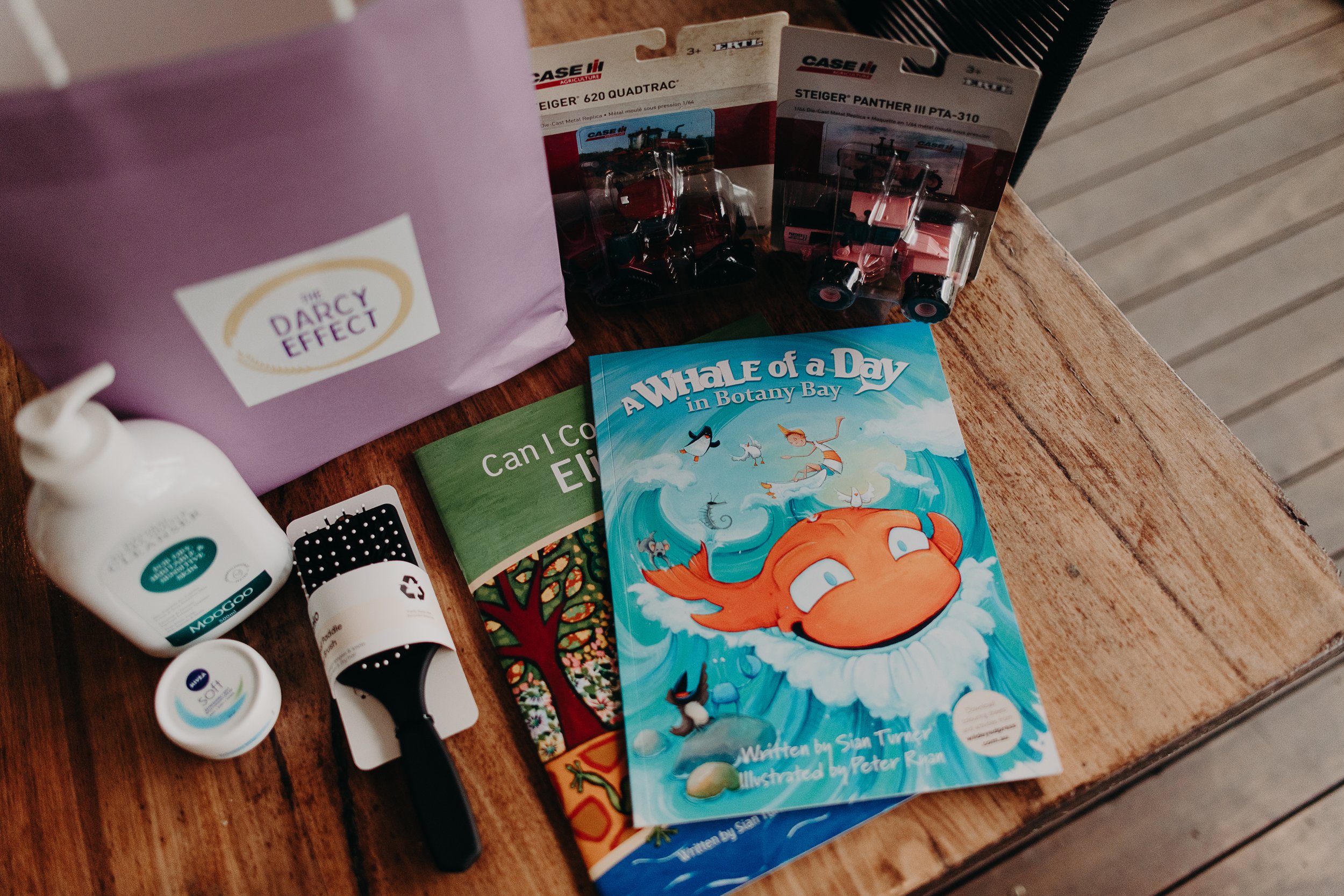Our Mission
Building awareness of rural and remote medical services, such that those communities can more easily access the support they need though the Rural Paediatric Health Hub.
Provision (or supporting the provision of) appropriate first aid training and resources for rural and remote communities.
Providing “care packs” for rural and remote families who receive medical care away from their place of residence.
Advocacy for rural and remote medical services and education.
Our Story
Since February 2022, we have had quite the journey. One Monday morning after drenching some ewes, our 16 month old boy named Darcy had a Tonic Clonic Seizure (at this stage we didn’t know what had happened!). It was only because our 3 year old son called for me to look at his little brother; I found our son unresponsive, blue and frothing at the mouth - to be honest I thought I was too late. After commencing CPR and what felt like an eternity, colour started to return to Darcy’s cheeks again. Two weeks later another seizure occurred and we had a challenging few days. We were eventually flown to Perth via RFDS where we stayed for two weeks. Recently we have been back in and out of hospital but with some perseverance we now have a private neurologist on our team and some amazing local doctors; along with some incredible friends to share the load.
I grew up in a country town 372km from Perth. Fortunately, I can never recall a time where we desperately needed health care, and the one time that my dad needed the RFDS was when we were all teenagers. After being sent to boarding school, I became a Health and Physical Education Teacher but my most loved position was as a Head of Year. This was due to the relationships I was able to build with my colleagues and students. Having been a passionate and enthusiastic educator for 13 years, I’ve noticed a gap in learning opportunities for rural and remote students in comparison to their city friends; not that this would surprise anyone. Little did I know my biggest learning curve was the quick, steep and personal one when navigating the massive gap in rural medical opportunities in relation to our metropolitan counterparts.
There are many country people who are in much more difficult and heartbreaking situations than us, and who are much more isolated geographically. Our family has a good outcome and for that we are fortunate. After the days I’ve spent holding a sleeping toddler who was zonked from his seizures, worrying about how his siblings and his father are coping, and not knowing what the next day would bring, I’ve told myself that we, as a family, can make a difference.
Usually, Day 3 after a seizure, Darcy is terrorising everyone in the hospital and the hospital itself; it’s a sign that he needs to go back to the farm with his lifesaving big brother and his big sister whom he adores. Darcy charms the old ladies across the corridor by blowing them a kiss and a cheeky smile, throws toilet paper in the toilet to block it, scribbles on the whiteboards and the walls, presses the emergency bell numerous times, and helps himself to the hospital yogurt stash and whatever else he can find.
Covid has made hospital stays more isolated due to a number of reasons. For many people who don’t live in a regional centre, if you have other children, it can make it difficult with supporting each other as a family unit due to restrictions on children and the number of visitors. I understand this is required but it’s tough on everyone, especially the little people. Extra kilometres are always clocked up as we have farms and livestock to tend to. To quote my husband who jokingly said the other day “ahh farming, the job that never ends!”, you can’t just simply leave at the drop of a hat for a long period of time. To just pop home for us from hospital would be roughly a 100km round trip; this is a quick trip in comparison to many others!
Nurses and doctors are working in a system that is under immense pressure with crumbling processes. The majority care for their patients with a big warm heart. So many amazing nurses donate items for patients such as toothbrushes, combs, hairbrushes etc from their own pocket, and although they don’t have to they do, when times are very tough and the unknown is looming, they know how to support you best, even when they could be terrified of the outcome themselves.
So how does one spark change when they have spent sleepless nights worrying about their children but also promising that they will make a difference, although it may be small… The Darcy Effect!
Kate xx


